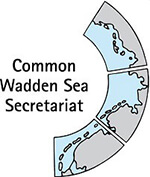DARKER SKY
Project Info
Light pollution - caused by excessive, misdirected or inappropriate nighttime use of outdoor artificial lighting - is increasingly recognized as a multi-faceted problem that negatively impacts not only human health, but also the ecological dynamics of ecosystems and their wildlife. Especially in the sensitive North Sea Region (NSR) - with the Wadden Sea World Heritage Site at its center - light pollution can be identified as an increasing challenge.
Through the international research project DARKER SKY, innovative lighting solutions will be developed in the NSR to effectively reduce light pollution for the benefit of nature. Environmentally friendly lighting concepts and systems will be planned and implemented at a total of 7 demonstration sites in France, Germany, the Netherlands and Denmark. As part of the project, NPorts 2024 will retrofit the lighting of the eastern harbor in the Norddeich branch and reduce light pollution in the Wadden Sea region through a smart and demand-oriented lighting solution.
However, there is not the one optimal illumination. A well planned illumination creates a safe and pleasant lighting with the lowest possible energy consumption, disturbs the ecosystem as little as possible and avoids light pollution. The individual factors sometimes compete with each other and must be weighed individually. We ask ourselves the following questions in particular:
- What impact does light pollution have on life on land and in water?
- How can light pollution be reduced sustainably?
- How can lighting be controlled dynamically and according to demand?
- Which technologies should be used to enable efficiency and environmental friendliness?
In developing an individual retrofit concept for the port lighting at the Norddeich branch, NPorts is therefore working closely with the project partners, external experts and scientists.
DARKER SKY is carried out in the framework of the Interreg North Sea Programme (www.interregnorthsea.eu) under the Programme Priority 3 “Sustainable North Sea Region” and the Specific Objective 3.2 “Develop new methods for the long-term sustainable management of North Sea ecosystems”. The programme is funded by the European Regional Development Fund (ERDF) of the European Union.















